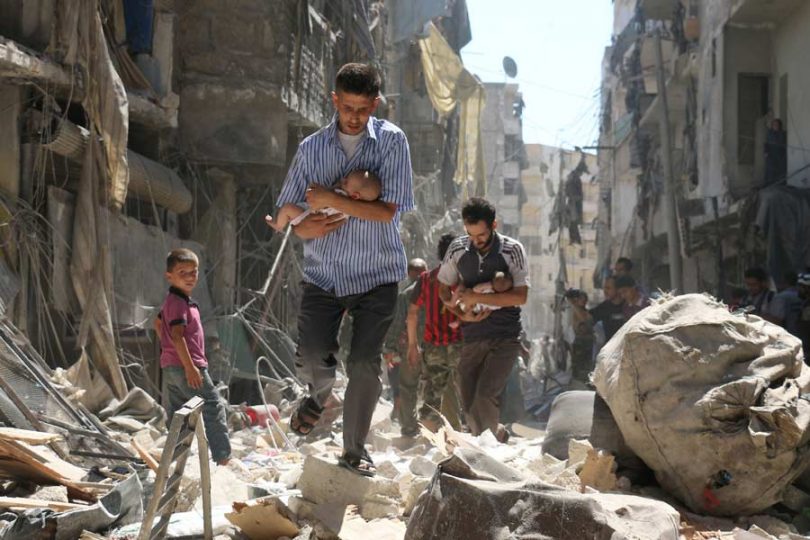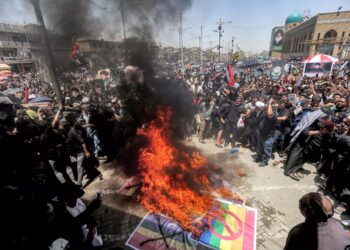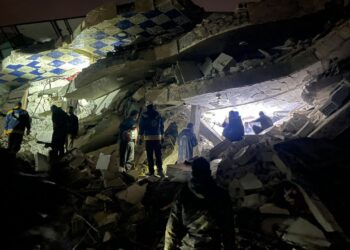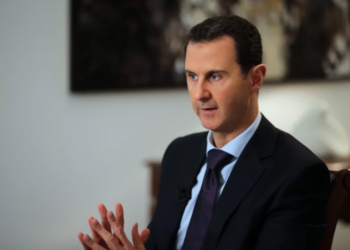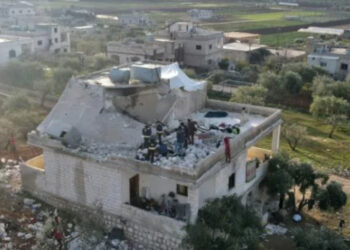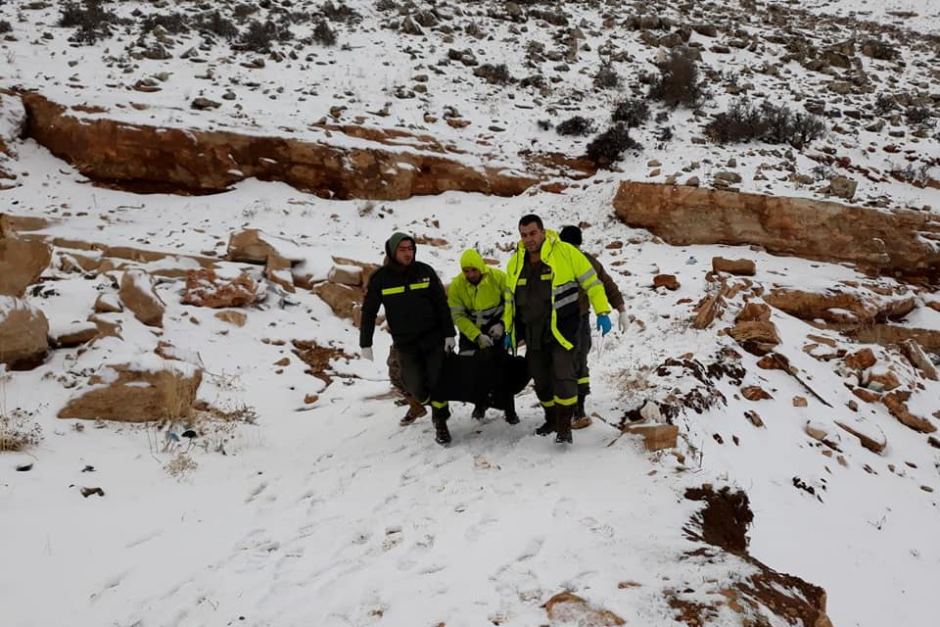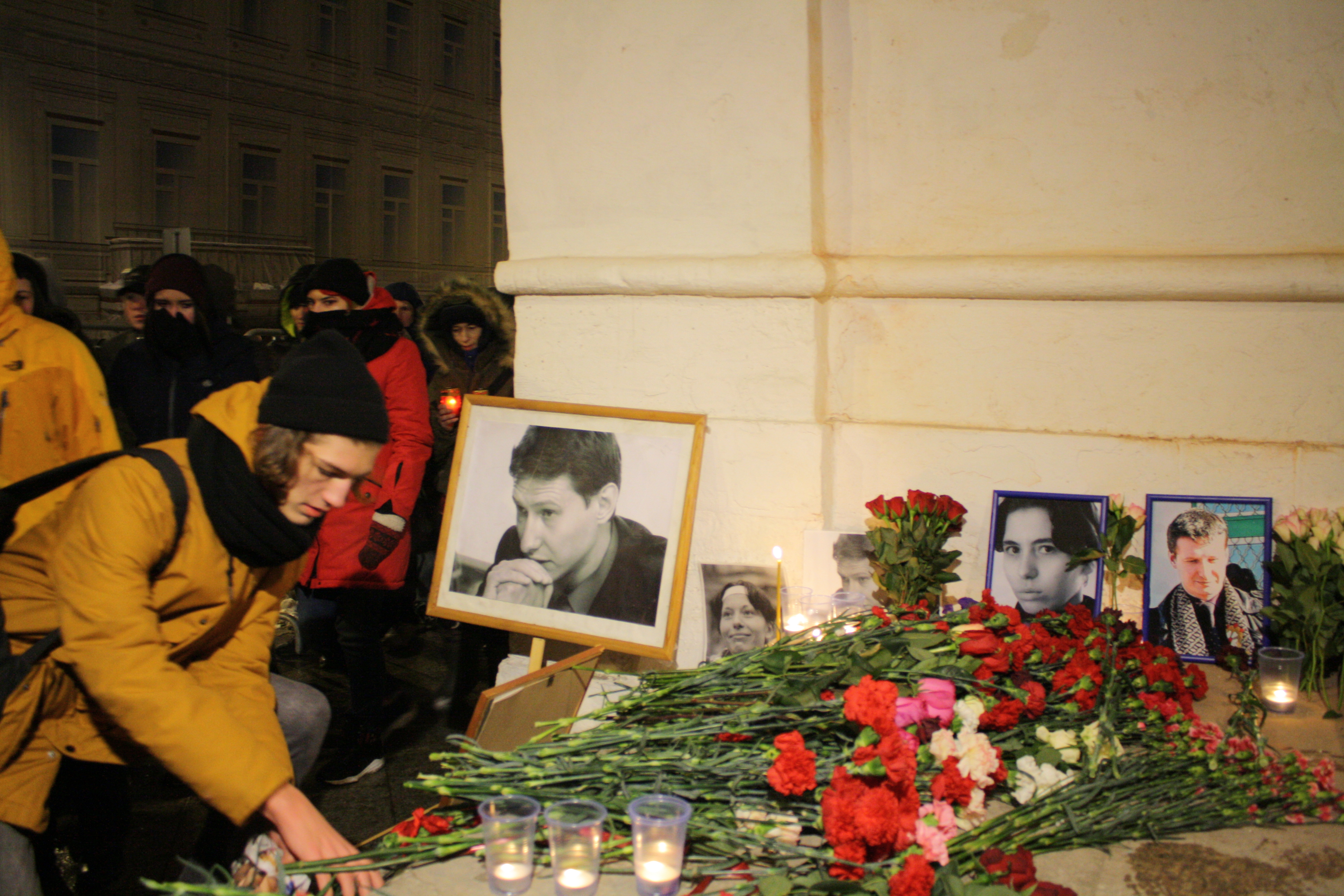Syrians and Iraqis are forced to pick up the pieces after years of conflict, as they try to recover and bury endless amounts of dead bodies.
Workers dig deep in the rubble, pushing past the suffocating stench of rotting flesh – which lingers in recent battlefields like in Iraqi Mosul, to find every corpse and actually create space to bury them. Both of which prove a challenge.
Syria fell into civil war in 2011, while Iraq has suffered from infighting for over a decade. Both lost territory to Islamic State when it emerged in 2014. Yet the extremist faction is virtually eliminated on the battlefield.
In July last year, the Iraqi Army, backed by U.S.-led coalition airstrikes, finally reclaimed the key city of Mosul from ISIS.
Mosul’s Civil Defense, a crew of just twelve men, made brave efforts during and after the liberation to find and recover dead bodies buried in the rubble. Even now, the team still works six days a week, fishing out bodies from destroyed areas of the city.
Within the Civil Defence Force’s headquarters, families come to them to request they recover their dead relatives.
“We are ready to do our duty,” Mohammad Shabaan, one of the workers, said, as quoted by GQ. “Collecting bodies, fighting fires, or cleaning streets. Whatever Mosul needs, we are here.”
Media reported that up until September, local medical facilities recovered nearly 3,000 dead bodies from under the rubble in Mosul. The number of bodies still scattered across the city is unclear.
“Dead body management in Iraq is a still serious issue, as bodies are said to be buried under the rubble, on the streets, in addition to the bodies received by the local health facilities. Dead body management is now a priority in Mosul, since more and more bodies were recovered from under the rubble and brought to the hospital and morgue, either by the military or by the families themselves,” Iolanda Jacquemet at the International Committee for the Red Cross told The Globe Post.
“There are also reports of an increasing number of mass graves being discovered in other areas recaptured from the Islamic State group,” she added.
At the end of 2017, Syrian forces discovered mass graves of dozens of ISIS victims. Other mass graves in former ISIS territories have been discovered across Iraq and Syria.
“Hospitals and morgues lack the capacity to accommodate all the bodies. Temporary and suitable burial places need to be identified, documentation needs to be provided to the families, and there is a need to ensure that unidentified bodies can be traced [and] identified at a later stage,” Ms. Jacquemet said.
Elsewhere in Syria, where nearly half a million estimated deaths occurred since 2011, civilians for years have struggled to bury corpses which litter their hometowns after the war.
Graveyard workers in the city Douma, near Damascus, have struggled to find room to bury the deceased since the summer of 2015. Cremation is not possible since Islamic traditions permit burial only. Therefore, bodies are crammed into multi-layered graves and labyrinth tombs made from mud bricks. One three-layered grave could hold around one thousand bodies.
Eastern Aleppo faces similar issues after bloody clashes between the regime and opposition forces in 2016. Many public parks have turned into crude graveyards for Aleppo’s deceased, as the city’s original graveyard quickly became overflowing with dead bodies.
Firas al-Khateeb, a Damascus-based spokesperson for the UN Refugee Agency (UNHCR), told The Globe Post “it is a tradition for multiple bodies to be buried together in Syria, especially for families,” with two or three-layered graves being common, due to burials being expensive even before the war.
Yet he feels that due to the amount of corpses from the war, the issue could “intensify and create overwhelming practicality problems across Syria, and this could also occur in current conflict zones like Idlib and Eastern Ghouta.”
While an epidemic disease breakout is unlikely, WHO Spokesperson Tarik Jasarevic told The Globe Post that workers routinely handling corpses risk contracting a number of bloodborne and airborne viruses – such as tuberculosis, hepatitis and HIV, which could be a health risk in both Iraq and Syria.
Mr. Jasarevic also warned that overcrowding in mass graves would drain already scarce resources in Iraq and Syria. He noted that other burial facilities should be provided if graveyards become insufficient and full.
Even if Syrians manage to flee the country, they still face the degrading burial they could face at home.
In March, The Guardian reported that in Lebanon, Syrians are forced to bury their loved ones in crammed, overcrowded, graves, while they often lack financial means to pay for a burial.
“It is a real crisis,” said Mohammad al-Ahmad, mayor of Omariyah, where half of the local cemetery is occupied by Syrians. “Imagine someone coming to you who can’t find a place to bury his dead loved one. When he asks you: ‘So where do I go with my dead relative? In Syria I’m homeless, and here I can’t even bury my relative.’”


